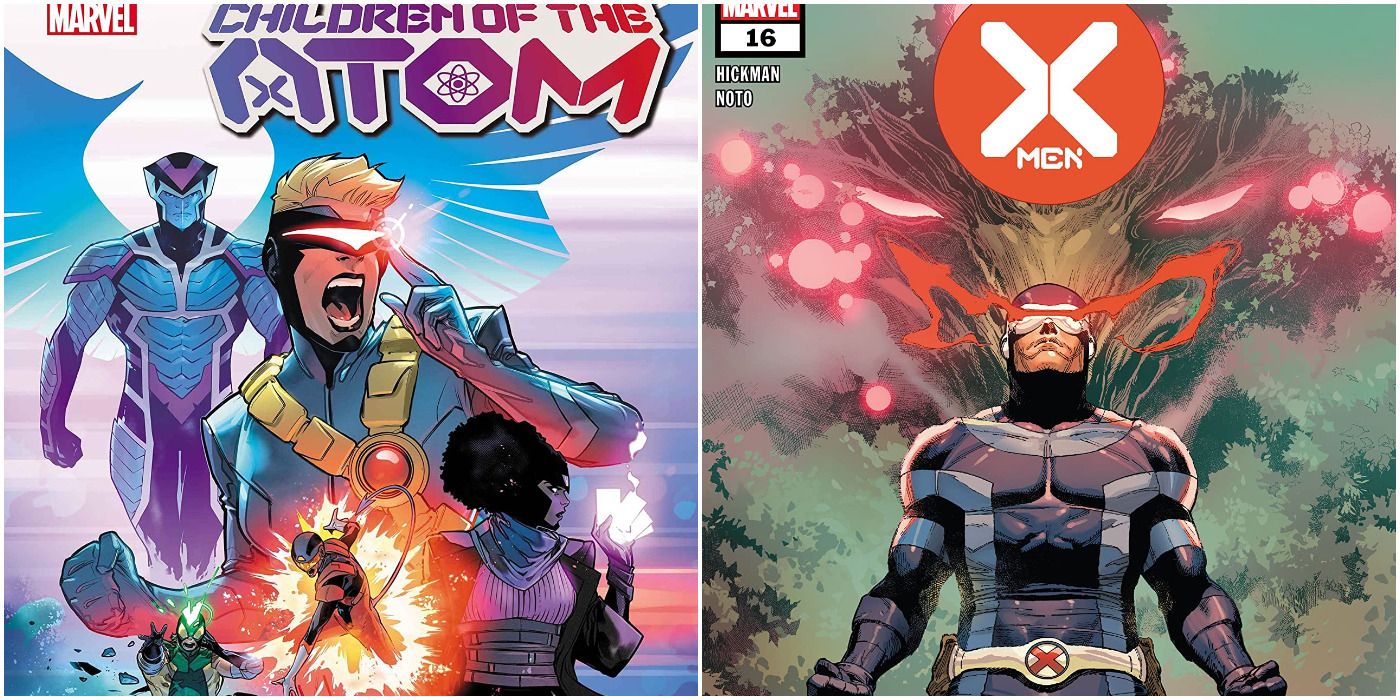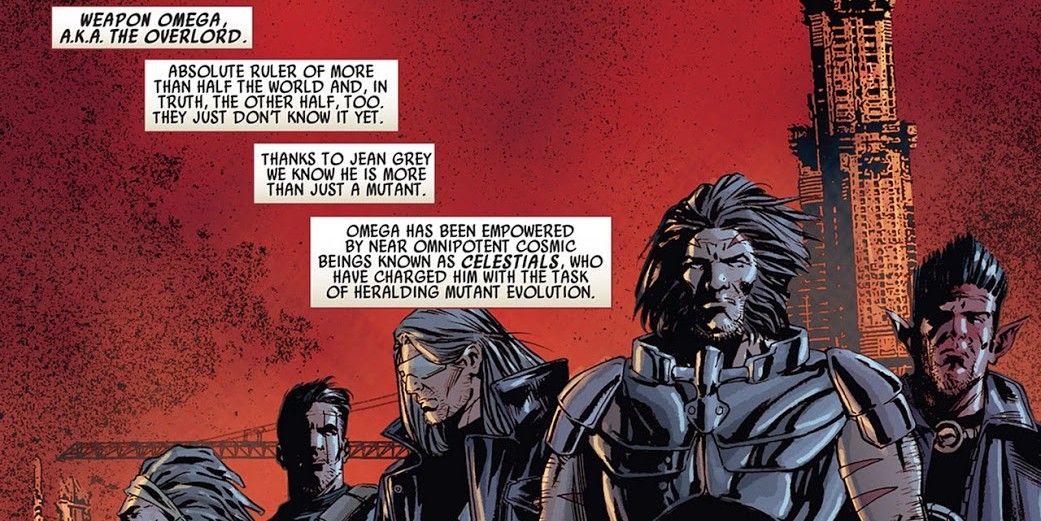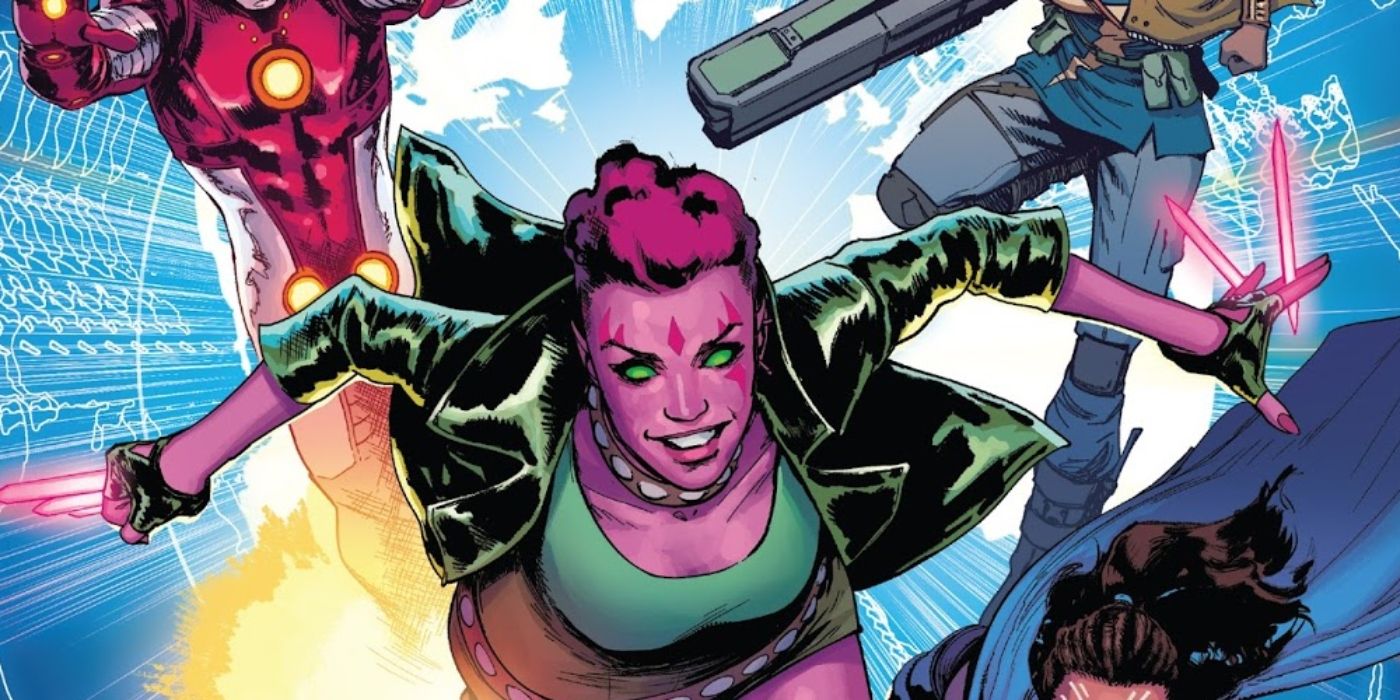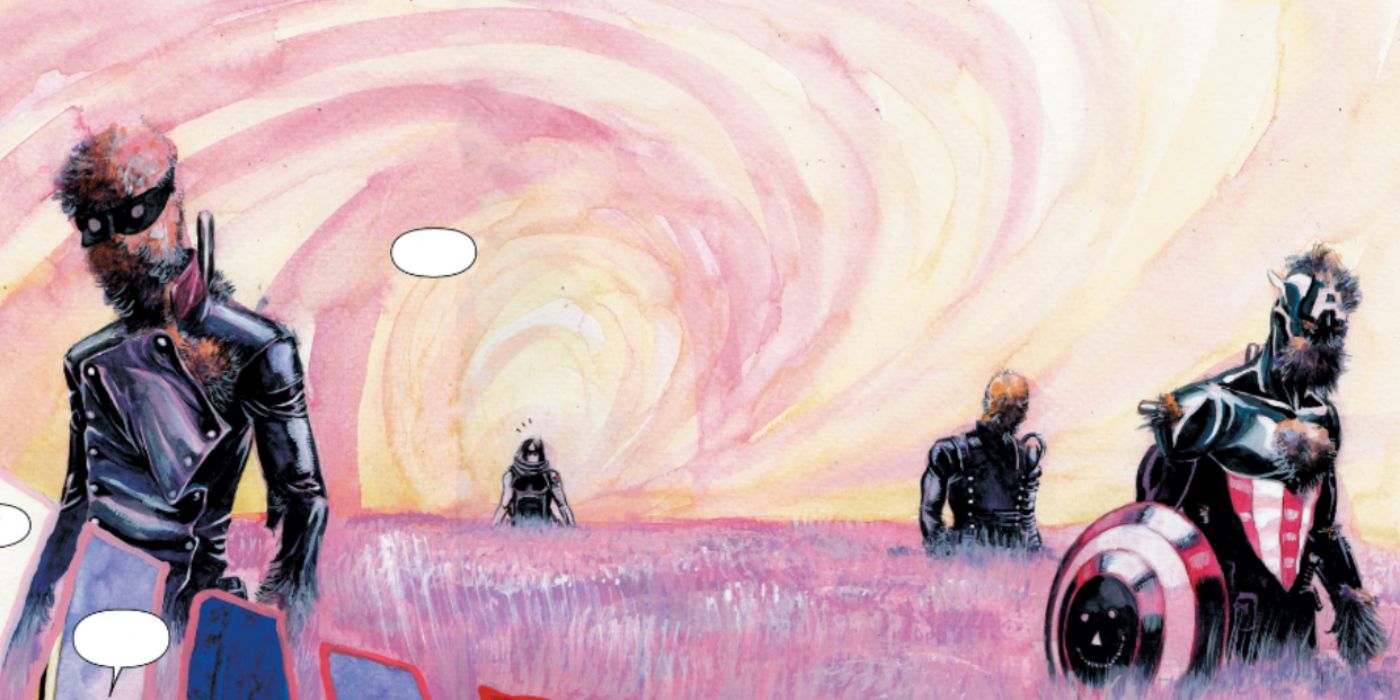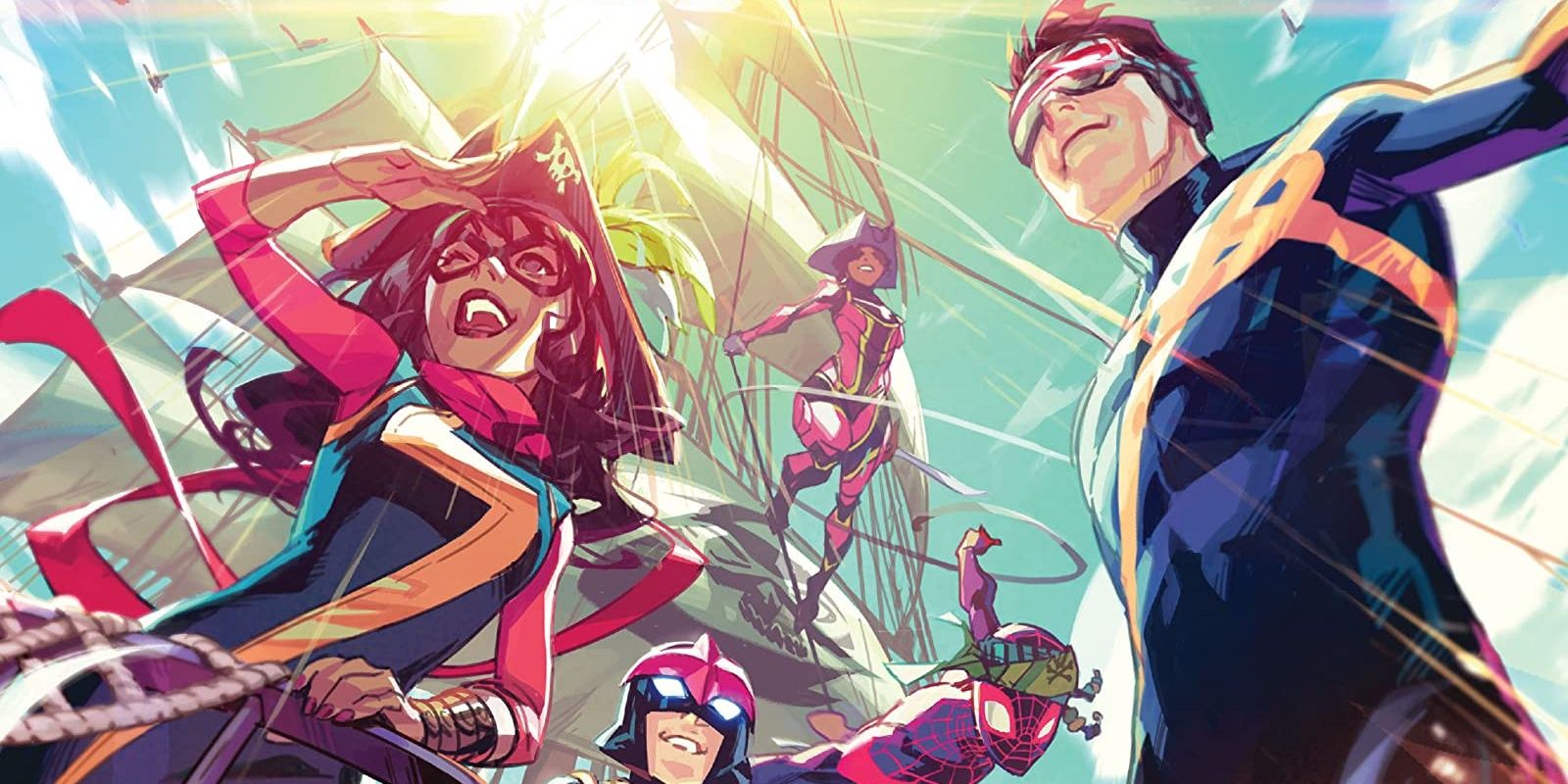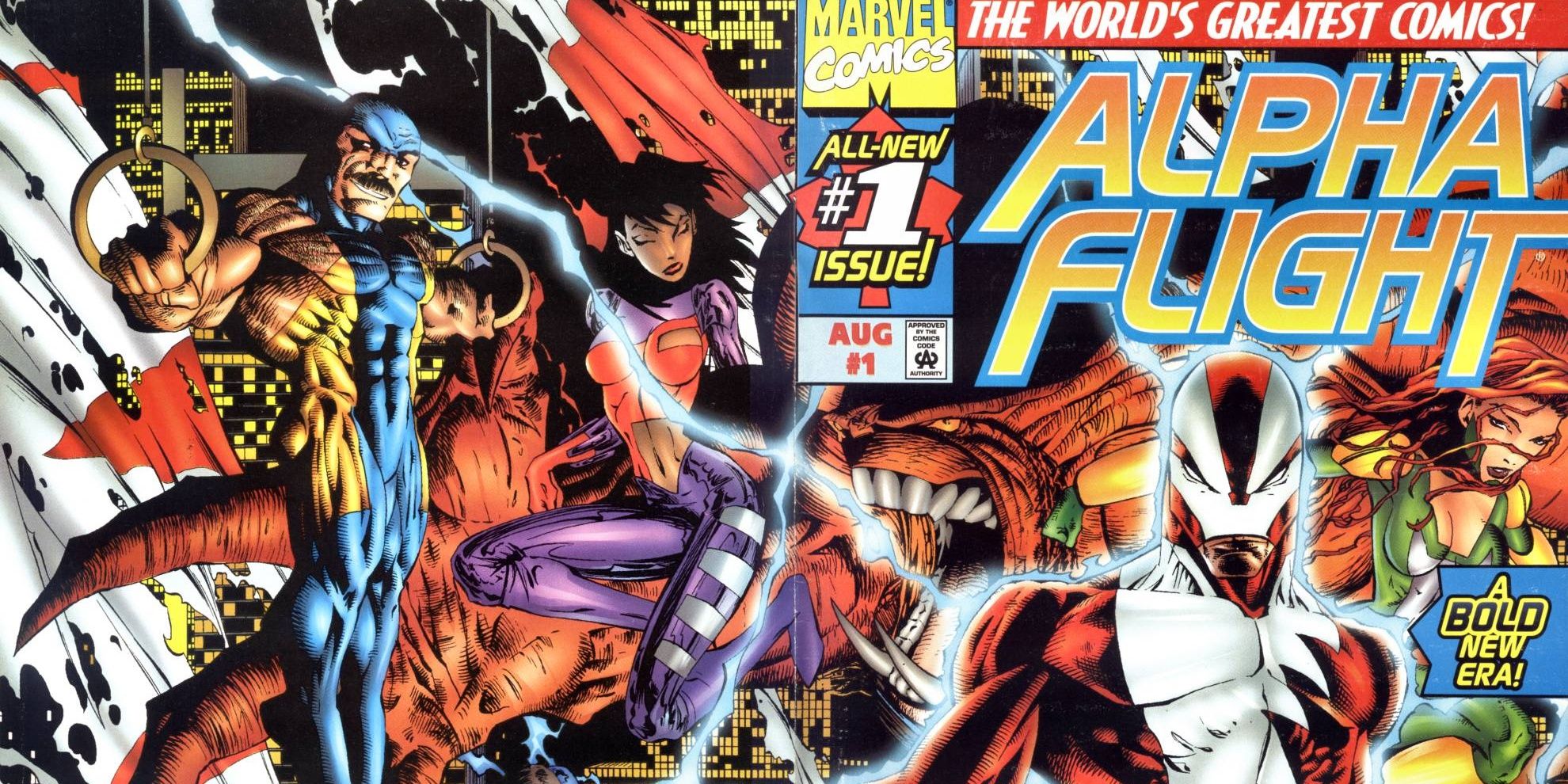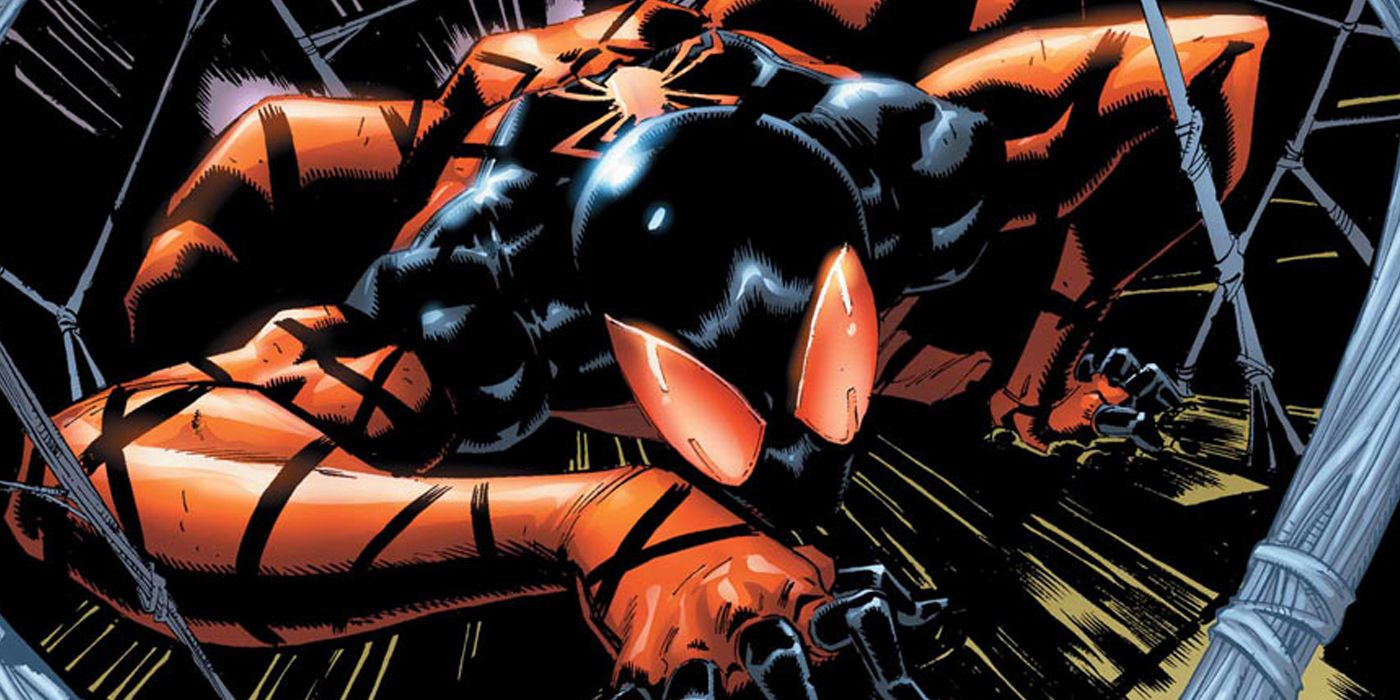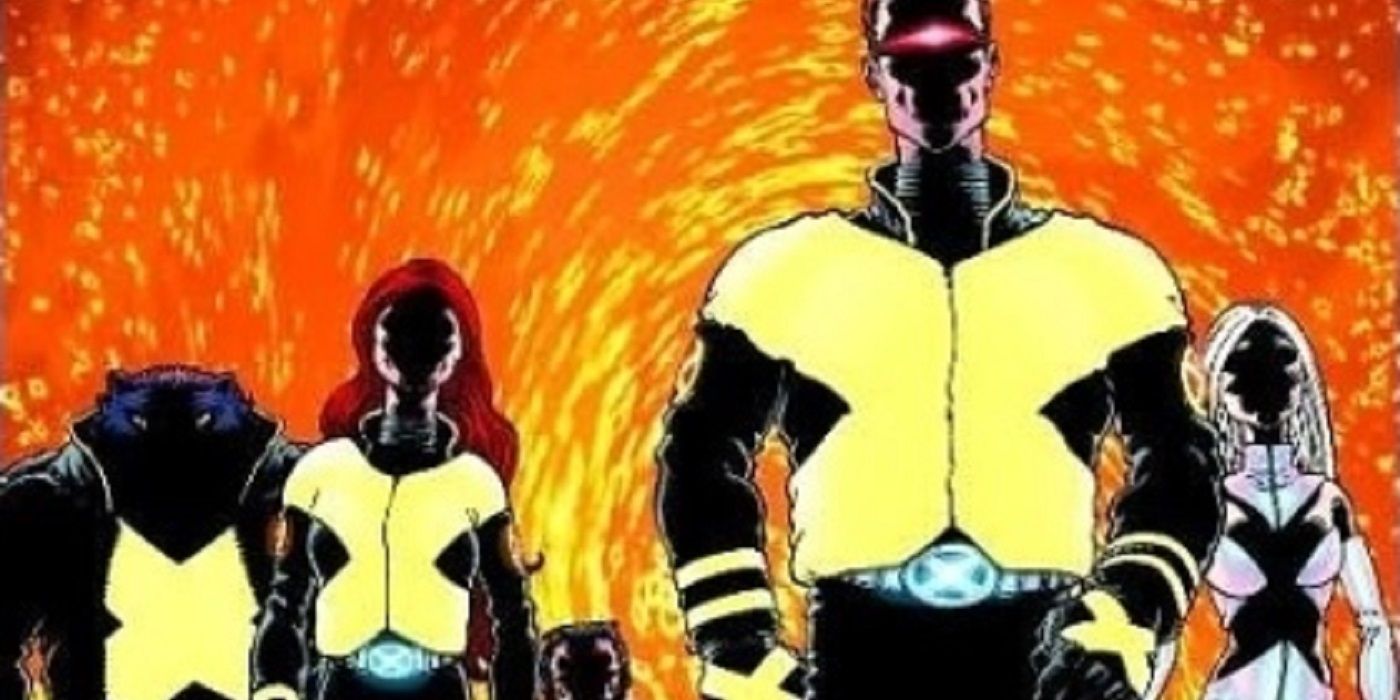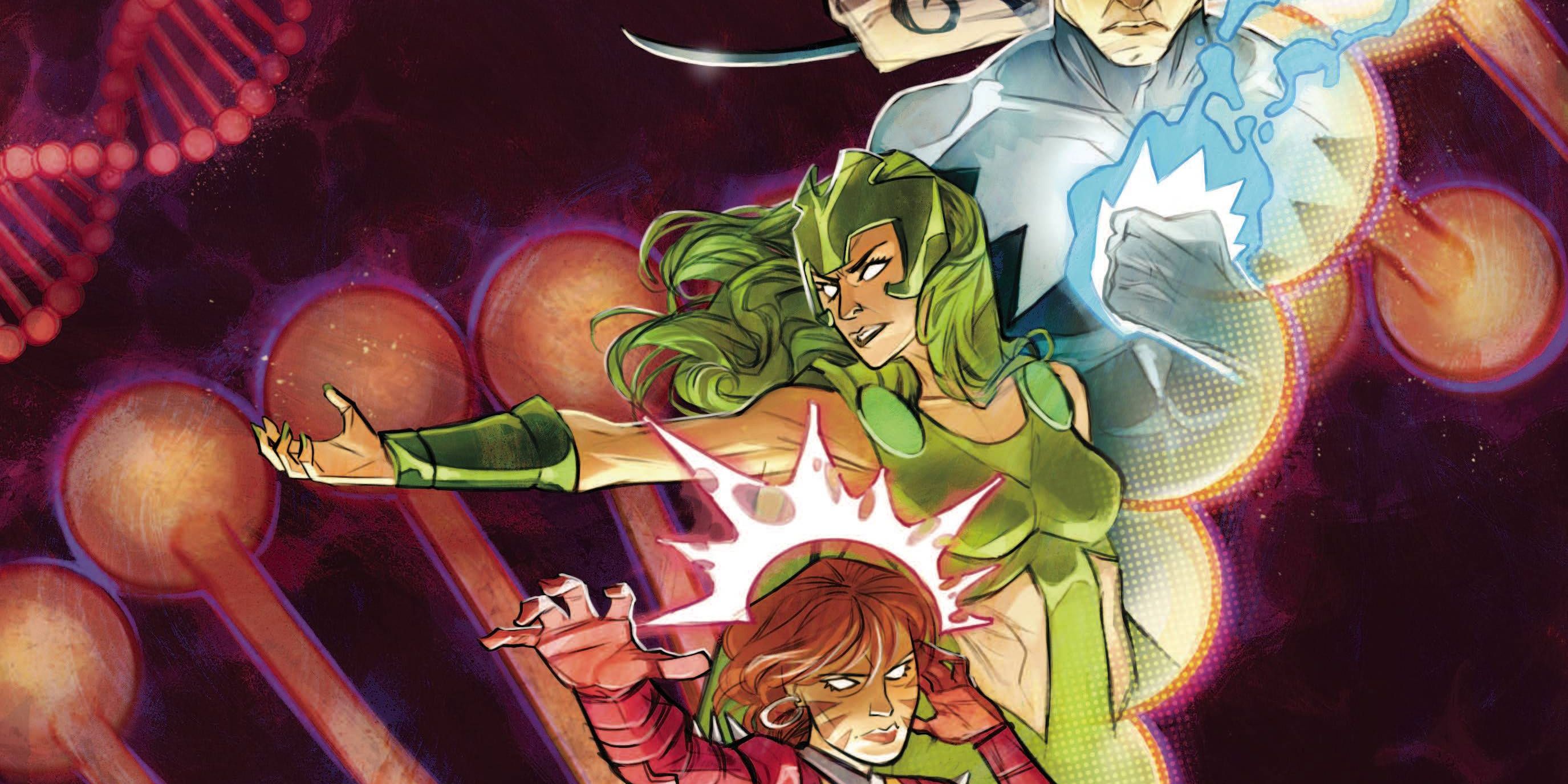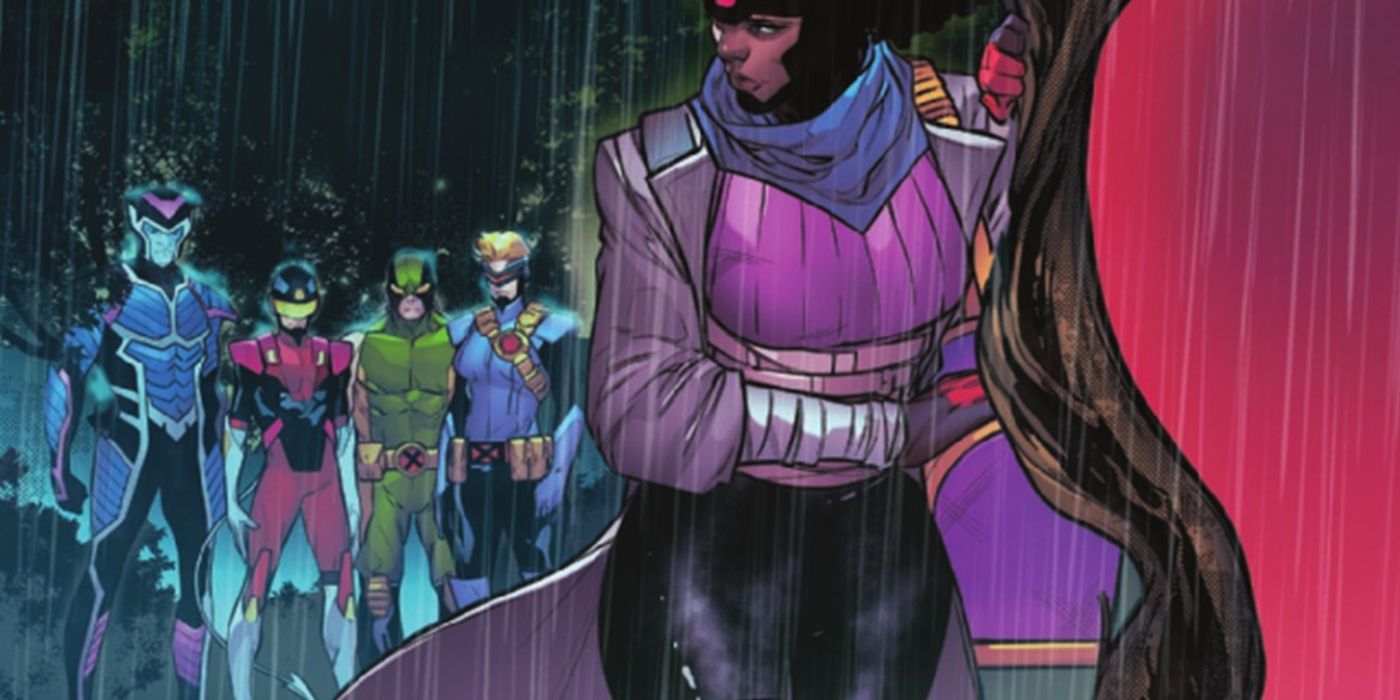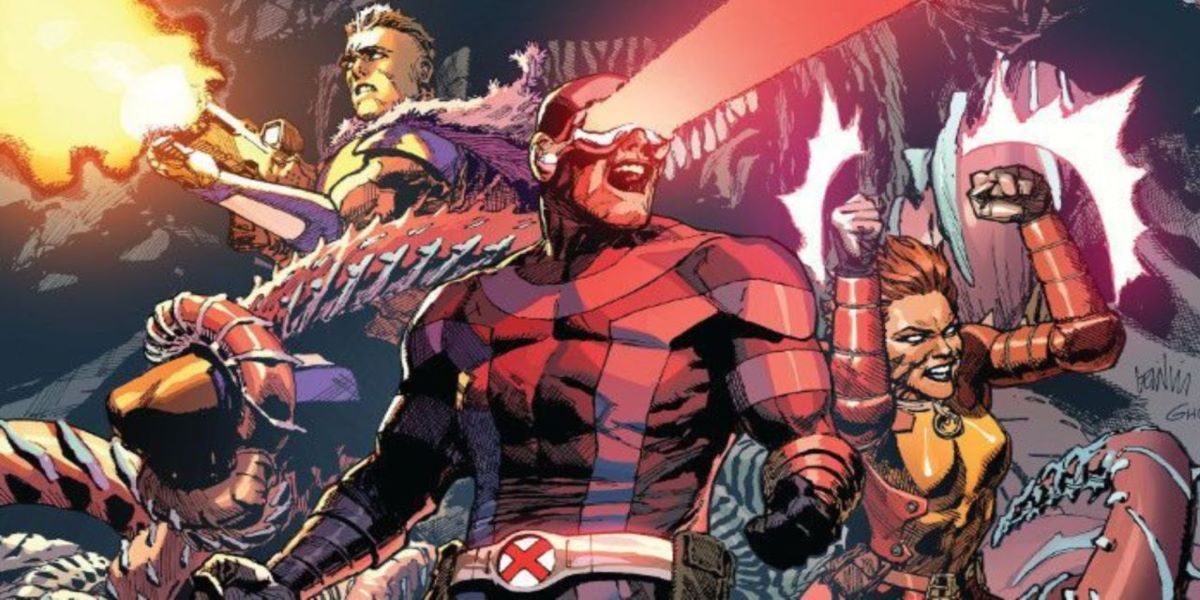Marvel has put out a lot of great comics over the years. The superheroes of the Marvel Universe have been enthralling fans for decades, but books always slip through the cracks for all kinds of reasons. The comic industry can be a fickle mistress; sometimes, the sales just aren't there, and sometimes, creators clash with the editors to such an extent that they leave the title.
Regardless of the why, there are a variety of factors why books are cut short. For fans of these books, it's a great blow. Many of these books were very good, and losing them was unfair to old readers and ones who never got to experience them.
10 2012's Age Of Apocalypse Was A New Take On The Dystopian Alternate Universe
Uncanny X-Force's "Dark Angel Saga" returned fans to the Age of Apocalypse and set things up for more adventures. Fans got those stories in Age Of Apocalypse, written by David Lapham with various artists, an ongoing series that saw the X-Men prepare to take on the new Apocalypse, Weapon X. Jean Grey and Sabretooth propose a radical plan, cloning Scarlet Witch to replicate the Decimation, but things don't go as planned.
The book dealt with all kinds of leftover factors from the fan favorite story but never really reached that large of an audience. It was canceled after fifteen issues, closing out the tale of one of Marvel's most famous alternate Earths.
9 2018's Exiles Barely Even Got Started
Exiles was always a fun concept for Marvel, following a team of heroes as they jumped around the Multiverse battling threats. The series made a comeback in 2018, starring Exiles mainstay Blink and Captain Carter, Iron Lad, X-Baby Wolverine, and Valkyrie, explicitly patterned after Tessa Thompson's portrayal of the character from Thor: Ragnarok.
Exiles only got a year before it got canceled. It had a great roster and premise, as well as being written by Saladin Ahmed, one of the publisher's most underrated writers. It never really caught on with the fans this time and barely even got started before taking its ride into the sunset.
8 Bucky Barnes: The Winter Soldier Had The Most Interesting Premise For A Bucky Book
After becoming Captain America, the Winter Soldier sort of coasted around the Marvel Universe until the ending of Original Sin. That story ended with Barnes becoming the Man on the Wall, whose job it was to destroy extraterrestrial and interdimensional threats before they got to Earth. This was perfect for Bucky and was the premise behind Bucky Barnes: The Winter Soldier.
Written by indie darling Ales Kot, this book should have run forever, but it only got a year. Part of that is because it came out of the unfairly maligned Original Sin, but the other part is that fans just weren't as into Winter Soldier on his own as Marvel believed. It's a shame, too, because this was a stellar book with all the potential in the universe.
7 Champions Rarely Lasts More Than Two Years
Marvel's non-mutant teen heroes often have a hard time keeping their solo books in the 21st century, with even titans like Young Avengers and The Runaways rarely getting long multi-year runs. Champions fell victim to this as well. Champions should have had legs by taking an old Marvel team and putting the most powerful teen heroes in it, but each volume gets fewer and fewer issues.
There's no reason a team superteam anchored by Ms. Marvel and Miles Morales Spider-Man shouldn't go for a hundred issues. Marvel's teen heroes are an unsung bunch, and the publisher has always put great creative teams on the book. Each volume of the book turns into diminishing returns, which is a shame because they've each been very good books.
6 1997's Alpha Flight Took An X-Files Inspired Tack On The Classic Marvel Team
Alpha Flight is the Canadian version of the Avengers, but by the mid-'90s, fans had gotten a bit tired of the same old, same old. 1997 saw writer Steve Seagle of Uncanny X-Men and Sandman Mystery Theater fame bring a new take to the team. Inspired by the X-Files and the conspiracy-minded mid-'90s zeitgeist, it played Department H as a sinister body and the team doing their bidding without ever knowing the real stakes.
This incarnation of Alpha Flight was much more interesting than the older straight superhero version of the team, layering mysteries on top of the team. Fans never really showed up in any numbers, and it was canceled in a little over a year.
5 2011's Scarlet Spider Brought Kaine Parker Back Into The Spider-Man Mythos
The Clone Saga introduced a lot of great characters for such a maligned story. One of the best was Kaine Parker, a deformed Spider-clone that could kill with a touch and had a grudge with Ben Reilly. Kaine ended up dead at the end of that story but has been resurrected several times, the most famous being 2011's Scarlet Spider by writer Kyle Yost and various artists.
Taking over the mantle of his former enemy, Kaine only got twenty-five issues before the book was canceled. Kaine was a great hero, and his adventures were exciting. On top of that, future superstar Ryan Stegman drew a lot of the issues, making this one a lost gem.
4 Grant Morrison's New X-Men Ended Early Because Of Editorial Battles
Grant Morrison's New X-Men was a revolutionary take on the team. Working with artists like Frank Quitely, Phil Jimenez, John Paul Leon, Chris Bachalo, Marc Silvestri, and more, Morrison dragged the concept into the 21st-century kicking and screaming, creating timeless X-Men stories that hold up even today.
While the book did run for four years, from issue #114 to 154, editorial clashes with Marvel higher-ups ended Morrison's run before they could work out all of their ideas on it. There's no knowing where Morrison would have taken the book next, but it would have been amazing.
3 2020's X-Factor Was One Of The Most Intriguing Books of The Krakoa Era
The Krakoa Era of the X-Men books has been rather fruitful, but they can't all be hits. One of the books that died an early death was writer Leah Thompson and artist David Baldeon's X-Factor. Picking up on the superhero detective book direction pioneered by Peter David in the mid-'00s, it saw old favorites and new faces unite to investigate mutant deaths around the world.
The book had a great set-up and was continually one of the better X-Men books on the market. Unfortunately, it only lasted for ten issues. The last story arc was presented as the underwhelming X-Men: Trial Of Magneto mini-series, which was barely an X-Factor story.
2 Children Of The Atom Was The Best Teen Book In Years
Another rare failure of the Krakoa Era was Children Of The Atom, by writer Vita Ayala and artists Bernard Chang and Paco Medina. Presenting a new team of ostensibly mutant heroes with a secret, it played with the new Krakoan status quo and the youth's reaction to it, building off forgotten concepts pioneered in Morrison's New X-Men — human kids gravitating to mutant culture.
The book had everything — great characters, expertly written plots, and killer art. It had some of the best LGBTQ representation at Marvel, written by the non-binary Ayala, and ended with the potential for more. Readers only got six issues, a monumental tragedy.
1 Jonathan Hickman's X-Men Was Cut Short By Marvel And The Other X-Men Writers
Jonathan Hickman kicked off the Krakoa Era of the X-Men with House Of X/Powers Of X, drastically changing the status quo of the books. He was soon cast as Head of X and set out on an ambitious three-act story, one that would run through multiple books with himself writing the flagship book X-Men, working with artists Leinil Yu, Mahmud Asrar, and more.
Sales across the line were great, something Marvel loved, and the other creators enjoyed playing in the new sandbox. After twenty issues and pressure from Marvel and his fellow writers, Hickman left X-Men and then the X-office entirely with Inferno. Fans got some amazing comics, but not getting to see how Hickman's story with him at the helm is a tragedy.

